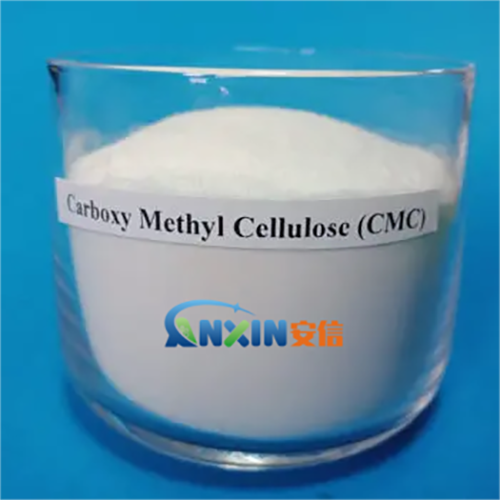Carboxymethyl Cellulose (CMC) is an important water-soluble polymer compound that is widely used in food, pharmaceuticals, daily chemicals, textiles and other fields. In the food industry, one of the most important uses of CMC is as a thickener. Thickeners are a class of additives that increase the viscosity of a liquid without significantly changing the other properties of the liquid.
1. Chemical structure and thickening principle of carboxymethyl cellulose
Carboxymethylcellulose is a derivative of cellulose formed by replacing part of the hydroxyl groups (-OH) of cellulose with carboxymethyl groups (-CH2COOH). Its basic structural unit is a repeating chain of β-D-glucose. The introduction of carboxymethyl groups gives CMC hydrophilicity, giving it good solubility and thickening ability in water. Its thickening principle is mainly based on the following points:
Swelling effect: CMC will swell after absorbing water molecules in water, forming a network structure, so that water molecules are captured in its structure, increasing the viscosity of the system.
Charge effect: The carboxyl groups in CMC will be partially ionized in water to generate negative charges. These charged groups will form electrostatic repulsion in water, causing the molecular chains to unfold and form a solution with high viscosity.
Chain length and concentration: The chain length and solution concentration of CMC molecules will affect its thickening effect. Generally speaking, the higher the molecular weight, the greater the viscosity of the solution; at the same time, the higher the concentration of the solution, the viscosity of the system also increases.
Molecular cross-linking: When CMC is dissolved in water, due to the cross-linking between molecules and the formation of a network structure, water molecules are restricted to specific areas, resulting in a decrease in the fluidity of the solution, thus showing a thickening effect.
2. Application of carboxymethyl cellulose in food industry
In the food industry, carboxymethylcellulose is widely used as a thickener. The following are some typical application scenarios:
Beverages and dairy products: In fruit juices and lactobacillus beverages, CMC can increase the viscosity of the beverage, improve the taste and extend the shelf life. Especially in low-fat and fat-free dairy products, CMC can replace part of the milk fat and improve the texture and stability of the product.
Sauces and condiments: In salad dressing, tomato sauce and soy sauce, CMC acts as a thickener and suspending agent to improve the uniformity of the product, avoid delamination, and make the product more stable.
Ice cream and cold drinks: Adding CMC to ice cream and cold drinks can improve the structure of the product, making it denser and more elastic, preventing the formation of ice crystals and improving the taste.
Bread and baked products: In baked products such as bread and cakes, CMC is used as a dough improver to enhance the extensibility of the dough, make the bread softer, and extend the shelf life.
3. Other thickening applications of carboxymethyl cellulose
In addition to food, carboxymethylcellulose is often used as a thickener in pharmaceuticals, cosmetics, daily chemicals and other industries. For example:
Pharmaceutical industry: In medicines, CMC is often used to thicken syrups, capsules, and tablets, so that the medicines have better molding and disintegration effects, and can improve the stability of the medicines.
Cosmetics and daily chemicals: In daily chemicals such as toothpaste, shampoo, shower gel, etc., CMC can increase the consistency of the product, improve the use experience, and make the paste uniform and stable.
4. Safety of carboxymethyl cellulose
The safety of carboxymethylcellulose has been confirmed by multiple studies. Since CMC is derived from natural cellulose and is not digested and absorbed in the body, it usually does not have a negative impact on human health. Both the World Health Organization (WHO) and the Joint Expert Committee on Food Additives (JECFA) classify it as a safe food additive. At a reasonable dose, CMC does not produce toxic reactions and has certain lubrication and laxative effects on the intestines. However, excessive intake may cause gastrointestinal discomfort, so the prescribed dosage standards should be strictly adhered to in food production.
5. Advantages and disadvantages of carboxymethylcellulose
Carboxymethylcellulose has its advantages and limitations as a thickener:
Advantages: CMC has good water solubility, thermal stability and chemical stability, is acid and alkali resistant, and is not easily degraded. This allows it to be used in a variety of processing environments.
Disadvantages: CMC may become too viscous at high concentrations and is not suitable for all products. CMC will degrade in an acidic environment, resulting in a decrease in its thickening effect. Caution is required when using it in acidic beverages or foods.
As an important thickener, carboxymethylcellulose is widely used in food, medicine, cosmetics and other fields due to its good water solubility, thickening and stability. Its superior thickening effect and safety make it a commonly used additive in modern industry. However, the use of CMC also needs to be scientifically controlled according to specific needs and dosage standards to ensure the optimization of its performance and food safety.
Post time: Nov-04-2024

